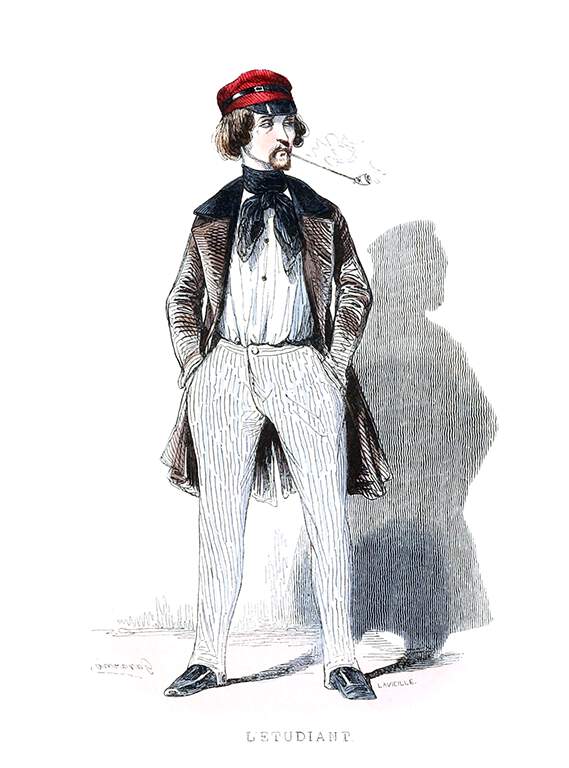Disclaimer: this article is and will not suggesting and promoting readers to smokes in their real life. Also this article is not encourage people to start smoking, especially those who still under the age. This article is intended to be used for tabletop role playing games. Smoking is not cool. But yeah, it might help your depressed life a little bit. BUT STILL, SMOKING KILLS.
While reading, compilling, writing and making the last two I Read This in 2024, Prismatic Wasteland is no doubt catching my eyes on. We're talking about the New (Year's) Resolution Mechanic. The challenge was simple - create a new resolution mechanic in this month of January 2024. The complex one is, what kind of mechanism that I can bring to the table?
In my game, Employee, you will be playing as an employee (duh) who work their ass to get the job done or die trying thanks to office-related stress or maybe sinister entity that controlled the whole company. And when this stress level (in-game I named it (IN)Sanity points) is beyond player's threshold, their (IN)Sanity level will up and they might see something that they didn't see before - mentaly and supernatural-y.
Can this level be lowered down? The answer is No. But can it be reduced the impact to their points and levels? There's a possibility.
In every five in-game days, the Player will get Weekends, where their (IN)Sanity points will be reset to zero, but not their level. They can start a brand new week with fresh and a little bit sanity inside their head. But what if it their at their limit, that with just a little nudge and they will became level 5 (IN)Sanity person, but it's still in the middle of the week?
I got this idea while I was taking a smoking break at the office earlier today.
See, smoking is an activity that a lot of people do, while also a lot of people despise. Some use cigarette, some use cigar, some use the electronic ones, some rolled their own recipe. Despite how they smokes or what they smokes, I see several things that became an output of smoking:
- Death. An obvious one. Maybe started with illness first;
- Stress relieve. Even it's just a temporary nerf of the stress, sometimes it's helpful when the time was not right;
- Ease up the convos. Some people do business while eat, some people deal at a meeting table, some taking a smoking break that might break the informality between them and the client and ease up the business process they trying to make.
- A flawless ice-breaking method. New at work or just transfered to new division? Smoking might help to ice-break those thick wall of iceness from those ice-cold stare humans and find some warm and welcoming individuals at the new ice-ice-baby place.
- Nicotine rush. Sometimes when I need inspiration or I need to clear the fog out of my head, I take a short smoke break, not even finished the whole cigarette; I just need the nicotine hit. It's like a little nudge to the brain to tell them to wake up.
So, what was the mechanism?
Proposing "Smoking Kills (But Also Helps)".
The concept is when the PC smokes a cigarette/cigar/e-cigs/pipe/handrolled/whatever, they might get a small temporary buff on one or several attributes such as sights, awareness, critical thinking, charisma (for talking and breaking the ice) or maybe shove away the sleepiness for a while. And if I try to apply it to Employee, PC could temporary decrease the amount of their (IN)Sanity points by taking a smoke*1 (releasing stress and followed by contemplating, for example).
But will it always grant them these glorious buff whenever they do one? No. Sometimes, when the time was not right, smoking won't give you a single thing except heat and illness. No inspiration, no convos, nothing - only tars gummed up on your lungs. That's why, when a Player want to use smoking as their buff system or ice-breaking, they should roll a d6 where the result of 4 and above are considered successful (buff granted and ice has been melted).
So, that means, the PC can be smoking all the time to get those sweat buff, right? Yes, but with consequences. In every cigarette PC take, there is a latent harm that is waiting. Like in real life, smoking in games also affecting your character health (poking at you, Kojima-san)*2. Health will decrease as long as the character using/equiping the smoking item, until it depleted the whole health bar.
For this mechanism, health detoriating system (H.D.S.)*3 will be decided by using a d10 as a percentage roll every time a character take a smoke and it will treated as accumulative. For example, PC A with 100 points health, take a two time of smoking with d10 7 & 3, means their health already detoriating at 10%, which makes the permanent PC health into 90 points. Is there any chance to recover their health? Sadly no. It was the consequences. It's the opportunity cost that must be paid.
To conclude, this smoking mechanism might helps character to overcome short-paced encounter or minimizing risk in a very short tempo with simple and quick method to be pulled in the game, with a twist that every time they pull it off, their health detoriating bit by bit.


